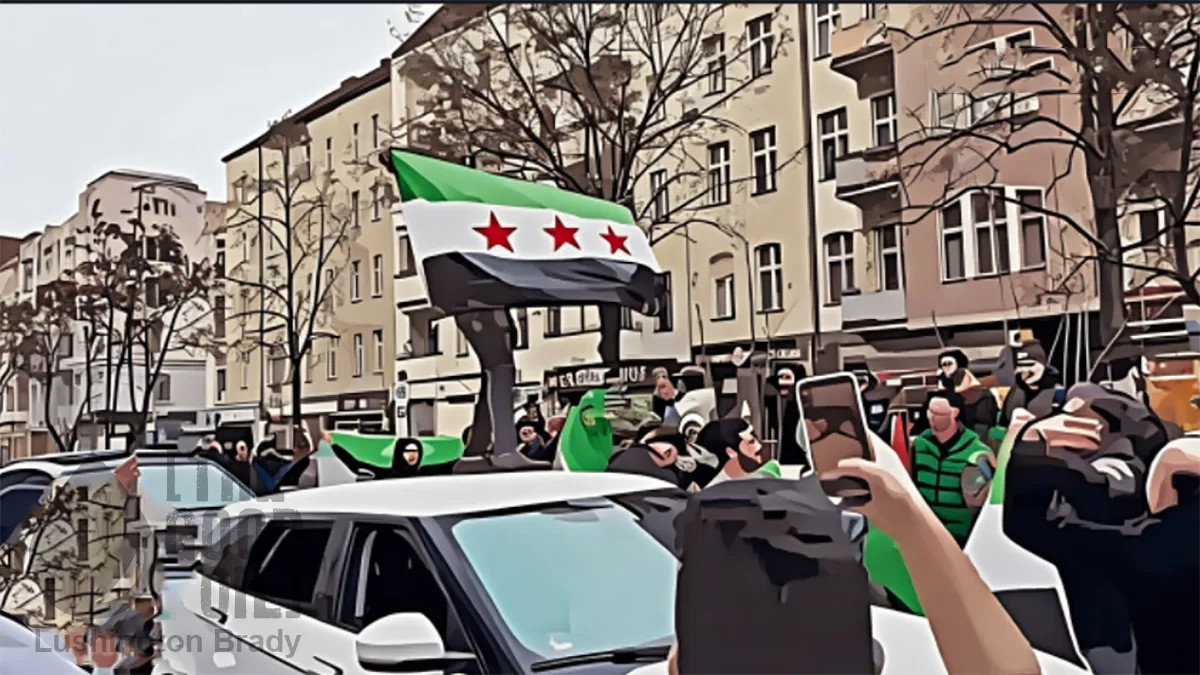Table of Contents
Three things are certain about post-Assad Syria: it will be a violent shithole for years to come, and the West will be begged to ‘save’ it and simultaneously hectored to submit its borders to yet another flood of Middle Eastern ‘refugees’.
Which begs the question: why?
While it might be in our self-interest to make sure that whichever Islamist warlord takes over doesn’t get to wreak havoc in our own yards, why on Earth should we be obligated to open our borders to yet more Middle Eastern mendicants?
Sure, the usual suspects will clutch their pearls about ‘Western imperialism’ and so on, but that’s just so much horse shit. Sure, while the West was mired in decades of war in Iraq and Afghanistan, at least they had the excuse of fruitlessly trying to save those benighted shitholes from themselves, however hamfisted the effort.
When it comes to Syria, though? Nope, that’s all on themselves.
That Syria’s descent into a murderous civil war was partly triggered by economic factors is clear. Far-reaching land reforms in 1958 and 1962-63 created a vast number of small to very small farms, which accounted for 60 per cent of all agricultural holdings but only 23 per cent of cultivated land. That structure was always precarious; what destroyed it was a trebling in Syria’s population.
‘Land reforms’ being, of course, shorthand for what was the cause of so much of the Middle East’s problems for decades: Arab socialism. Throughout the Cold War, the Soviet Union sought to buy influence in the Middle East by promulgating socialism as an alternative to the European empires in the process of sloughing off their troublesome imperial possessions. Being communists, their preferred method was propping up brutal socialist dictators.
But if socialism wasn’t already bad enough, mingling it with a backwards Islamic culture was even worse.
With inheritance laws subdividing those holdings as more and more sons survived into adulthood, the marginal farms, which accounted for the bulk of agricultural employment, became completely unviable. Steadily worsening water shortages, culminating in a disastrous drought from 2005 to 2010, then delivered the final blow, precipitating a flight to the cities, particularly from the Sunni areas, that left many rural villages without young men.
But Syria’s heavily regulated, corruption-ridden economy could scarcely absorb the inflow, so more than half of those young men became unemployed, eking out tenuous livelihoods in illegally built complexes on the urban fringes.
If anything is guaranteed to destroy a country, it’s a surplus of young men made useless by the government.
Another common pattern of ‘decolonisation’ also guaranteed unrest:
Exactly like Lebanon and Iraq, the [Syria] that gained independence in 1946 was a state without a nation. Nor were there any broadly shared goals or ideas that could shape a unifying national identity.
So, for over a decade, military coups (six in all) followed revolts by this or that ethno-religious minority.
It was only in 1966, when the Baath (Resurrection) party seized power, and then in 1970, with the so-called Corrective Revolution, which vested undivided power in Hafez al-Assad, that a degree of stability prevailed. The Baath had secured just 15 per cent of the vote in 1963, the last more or less free election; but, at least initially, it managed to coalesce a viable, if never broad, base of support.
But it had the army, whose officer core was dominated by Alawites that had replaced Sunnis in the previous decade of coups and purges.
Complementing that core was a tidal wave of Baathist patronage as sweeping nationalisations in 1964–65 and a 20-fold increase in the size of the public service – enacted in the name of “the scientific Arab way to socialism” – politicised employment decisions.
The disenchanted Sunnis fuelled yet more decades of shadowy conflict between the regime and the fundamentalist Muslim Brotherhood.
Suppressed in a sea of blood, the revolt of Hama’s Sunnis induced [Hafez al-Assad] to rely even more heavily on a pervasive security apparatus manned by Alawites and controlled by members of his family: of the 12 key officers who ran the military-security complex between 1970 and 1997, seven were linked to Assad by blood or marriage.
That pattern persisted when Bashar al-Assad acceded to the presidency in 2000. By then, however, the transition from “Arab socialism” to an especially degenerate form of crony capitalism had made the cracks in the regime’s foundations ever more glaring.
Especially with the Sunnis, as they are now doing in the West, out-breeding everyone else.
At the same time, the growing concentration of young, unemployed Sunni men in the major towns created an immensely receptive audience for radical imams, who – repeating the Al-Jazeera sermons of Hamas’s spiritual leader, Sheik Youssef al-Qaradawi – denounced the Alawites as “even more defiled than the Jews”.
It is therefore no accident that it was a broadcast by al-Qaradawi, calling, on March 25, 2011, for an uprising to root out the unbelievers, that transformed highly localised demonstrations into a national civil war.
So, when the usual suspects start their pearl-clutching demands to take in Syrian ‘refugees’, the only answer they deserve is ‘Get lost: not our doing, not our problem.’
In fact, in a rare outbreak of threatened sanity, several European countries are already starting to wonder why the Syrian refugees who were out in Western streets celebrating Assad’s downfall don’t just piss off back there.









